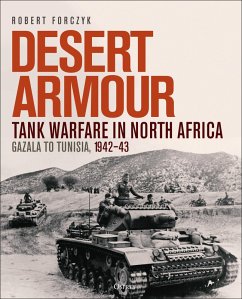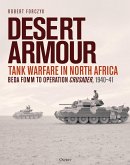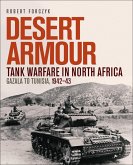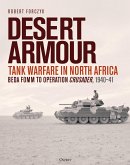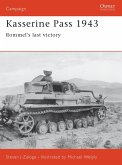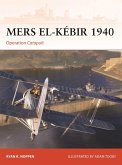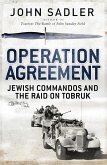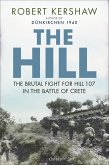Robert Forczyk covers the development of armoured warfare in North Africa from Rommel's Gazala offensive in 1942 through to the end of war in the desert in Tunisia in 1943.
The war in the North African desert was pure mechanized warfare, and in many respects the most technologically advanced theatre of World War II. It was also the only theatre where for three years British and Commonwealth, and later US, troops were in constant contact with Axis forces.
World War II best-selling author Robert Forczyk explores the second half of the history of the campaign, from the Gazala offensive in May 1942 that drove the British forces all the way back to the Egyptian frontier and led to the fall of Tobruk, through the pivotal battles of El Alamein, and the final Allied victory in Tunisia. He examines the armoured forces, equipment, doctrine, training, logistics and operations employed by both Allied and Axis forces throughout the period, focusing especially on the brigade and regimental level of operations.
Fully illustrated throughout with photographs, profile artwork and maps, and featuring tactical-level vignettes and appendices analysing tank data, tank deliveries in-theatre and orders of battle, this book goes back to the sources to provide a new study of armoured warfare in the desert.
The war in the North African desert was pure mechanized warfare, and in many respects the most technologically advanced theatre of World War II. It was also the only theatre where for three years British and Commonwealth, and later US, troops were in constant contact with Axis forces.
World War II best-selling author Robert Forczyk explores the second half of the history of the campaign, from the Gazala offensive in May 1942 that drove the British forces all the way back to the Egyptian frontier and led to the fall of Tobruk, through the pivotal battles of El Alamein, and the final Allied victory in Tunisia. He examines the armoured forces, equipment, doctrine, training, logistics and operations employed by both Allied and Axis forces throughout the period, focusing especially on the brigade and regimental level of operations.
Fully illustrated throughout with photographs, profile artwork and maps, and featuring tactical-level vignettes and appendices analysing tank data, tank deliveries in-theatre and orders of battle, this book goes back to the sources to provide a new study of armoured warfare in the desert.

